Blog
How to Protect Your Flock From Predators
April 2, 2025
Managing Predators in Spring
With spring comes a lot of great benefits—the weather is mild, egg production kicks into high gear, and your flock can enjoy spending more time outdoors after a long winter.
However, it also means predators in your area will be more active, and your chickens become an easy target. The best defense for your flock is a good offense, so it’s important to evaluate your chicken coop design and make sure it is thoroughly predator-proofed against wildlife.
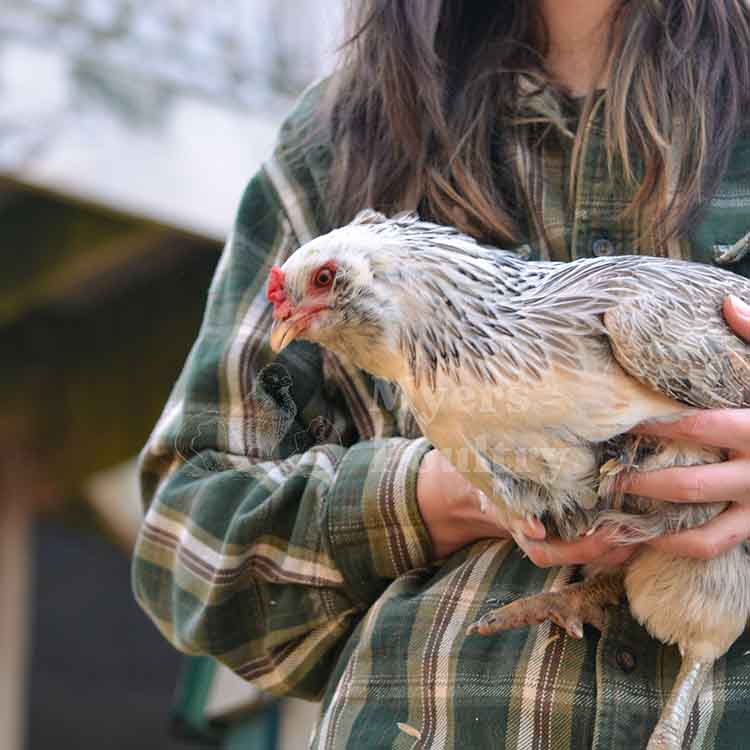 These are some of the best ways to protect your backyard birds:
These are some of the best ways to protect your backyard birds:
1. Use a High-Quality Chicken Coop
2. Learn Which Predators Live in Your Area
3. Remove Food Sources from Wildlife
4. Protect the Exterior of Your Coop
5. Add a Rooster or Guardian to Your Flock
6. Install a Perimeter Fence
7. Bring Your Chickens Inside at Night
Predator management is an unfortunate but necessary reality of chicken keeping. It’s your responsibility to make it as difficult as possible for predators to access your poultry.
Follow these tips to keep your coop and your flock safe this season.
Use A High-Quality Chicken Coop and Good Placement
A solid chicken coop design is a crucial first line of defense against predators. While no structure is completely foolproof, a thoughtfully built coop will give your flock the best protection. Key features of a predator-proof coop include:
• A fully enclosed and covered outdoor run
• Secure latches and locks on all doors and windows
• Windows and ventilation openings are covered with hardware cloth
• A solid foundation or an elevated base to deter burrowing predators
• Made of high-quality, durable materials such as wood or metal
Even if your coop is already well-built, placement matters. As a best practice, make sure your coop sits on elevated, open ground with high visibility. Predators are less likely to attack if they feel exposed.
Avoid placing your coop near wooded areas, dense brush, or other structures that provide cover for predators.
Learn Which Predators Live in Your Area
Every region has different predators to be aware of. It’s important to research the wildlife in your area, and determine what time of year they are most active. This will help you be proactive in your predator proofing and allow you to target your approach.
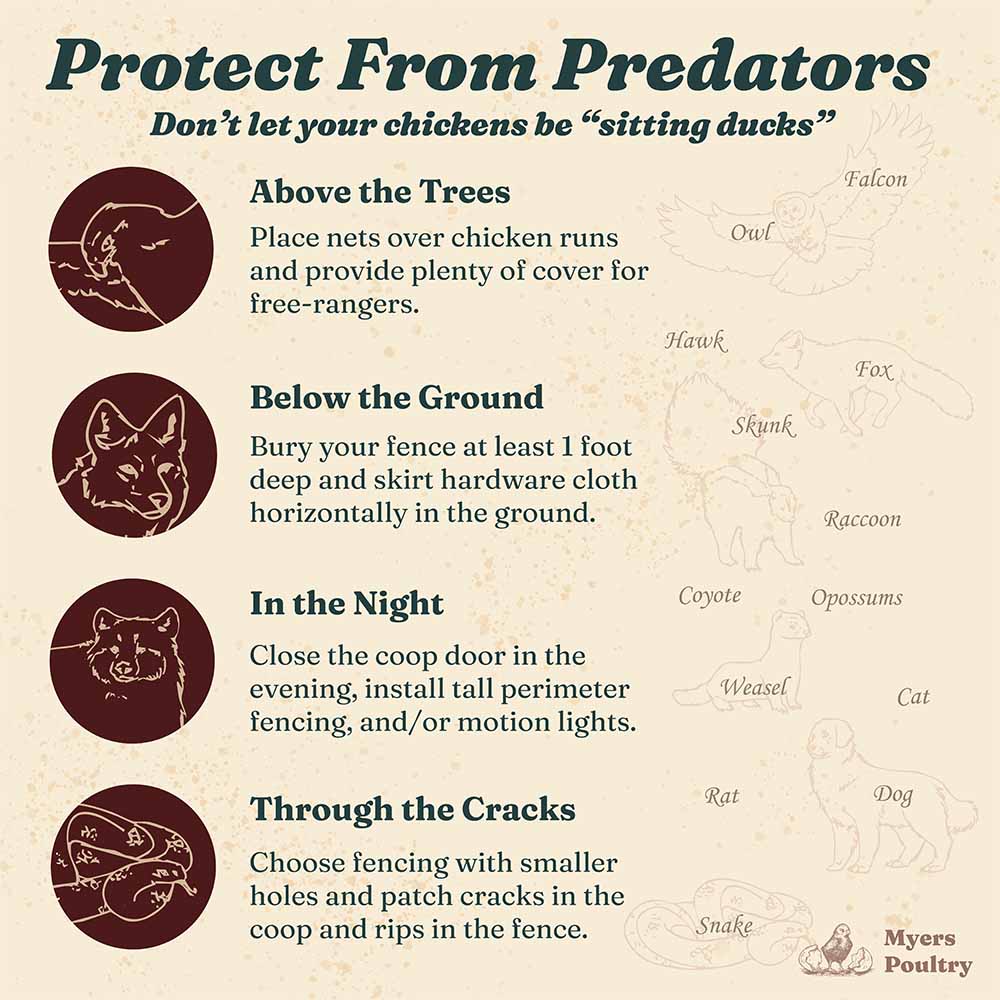
A list of common chicken predators include: Rats, raccoons, opossums, foxes, bears, coyotes, hawks, snakes, and even domesticated cats and dogs.
A great investment we recommend would be a trail camera, or a small camera placed inside of the coop. With motion activated sensors and connectivity to your phone, you can be alerted to unusual activity right away.
A camera is a great line of defense because it will tell you exactly what kind of animals are scoping out your coop, as well as any potential entry points that need to be sealed.
Remove Food Sources from Wildlife
Other than the chickens themselves, predators may be attracted to other sights and smells around the coop. Compost piles, chicken feed, and fresh eggs can be a big attractant to raccoons and rats in particular.
To make your coop less enticing to predators, don’t leave extra feed bags lying around in the open. Chicken feed should be sealed in a locked, airtight container and stored in an area away from the chickens.
Feed inside the coop should be difficult for wildlife to access as well. An automatic feeder can deter wildlife, or you might consider removing feed inside the coop altogether in the evening.
Keeping the area tidy in and around your coop will also be a big help. Compost piles should be located far away from the coop, as the smell of manure can attract wildlife.
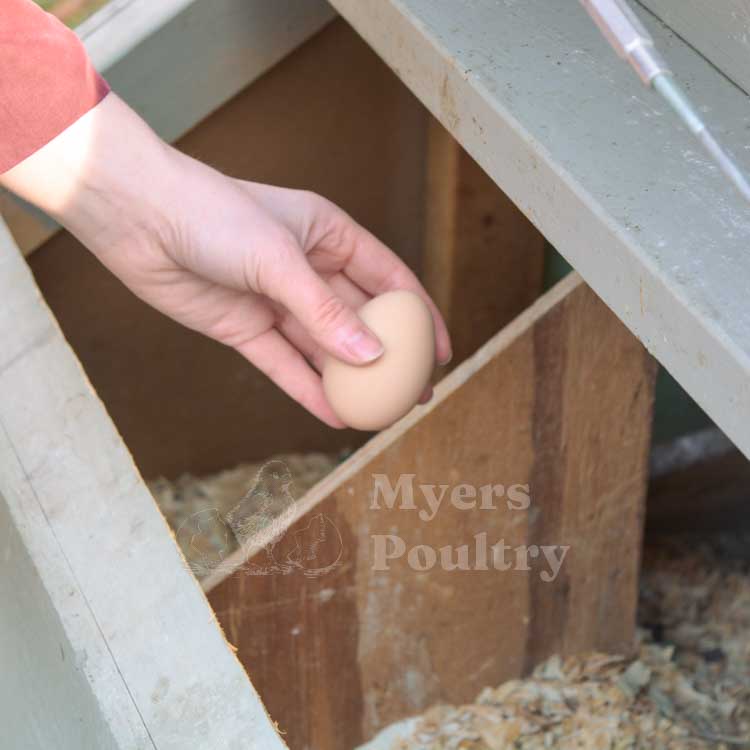 And if you’re not always on top of collecting eggs, consider checking your nest boxes daily.
And if you’re not always on top of collecting eggs, consider checking your nest boxes daily.
Fresh eggs are a great snack for snakes, rats, and raccoons, and they will do just about anything to get their hands on one.
If your hens have a tendency to lay eggs around the yard, make sure you thoroughly check your property for any eggs you may have missed.
To make your coop less enticing to predators, don’t leave extra feed bags lying around in the open. Chicken feed should be sealed in a locked, airtight container and stored in an area away from the chickens.
Feed inside the coop should be difficult for wildlife to access as well. An automatic feeder can deter wildlife, or you might consider removing feed inside the coop altogether in the evening.
Keeping the area tidy in and around your coop will also be a big help. Compost piles should be located far away from the coop, as the smell of manure can attract wildlife.
Fresh eggs are a great snack for snakes, rats, and raccoons, and they will do just about anything to get their hands on one.
If your hens have a tendency to lay eggs around the yard, make sure you thoroughly check your property for any eggs you may have missed.
Protect the Exterior of Your Coop
A well-built enclosure for your chickens is great, but it isn’t enough on its own. If you want to stop predators before they start, adding extra protection to the exterior of your coop will keep your chickens safe and secure.
To stop burrowing predators, many growers like to bury or skirt hardware cloth into the ground around the chicken coop and run. Bury the hardware cloth at least a foot deep and tightly secure it to the coop with heavy duty screws and washers.
If installed correctly, predators will be deterred by the wire and won’t be able to tunnel underneath. We strongly recommend doing this if you know coyotes or foxes frequent your area.
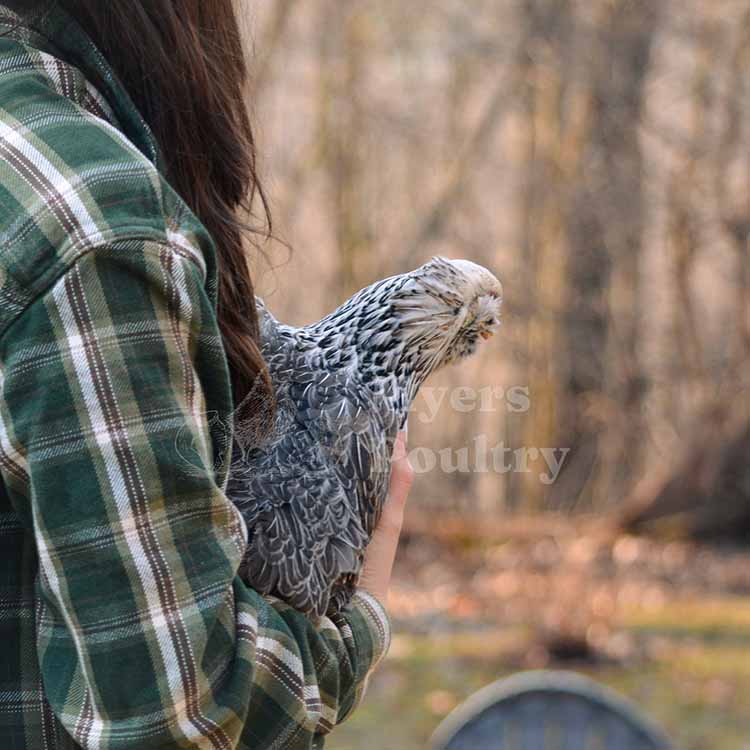
Another method for securing your exterior is by adding lighting. Most nocturnal predators will spook and leave the area when lights come on, preventing a tragedy before it happens.
The Myers Poultry team has used Niteguard solar lights in the past with great success. They come on automatically at dusk, and they are resistant to harsh weather and the elements.
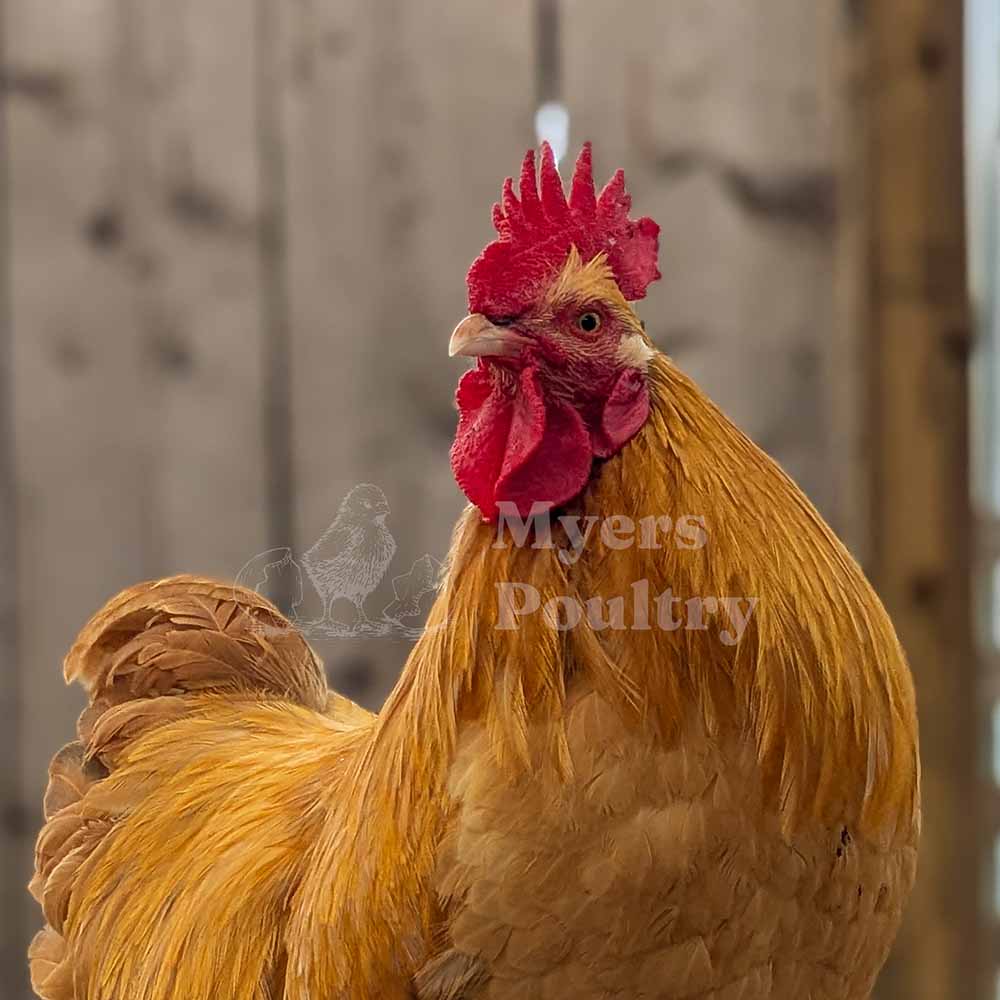 While roosters are not for everyone, they can be a beneficial addition to your flock if your local regulations allow (and if you don’t mind the extra noise).
While roosters are not for everyone, they can be a beneficial addition to your flock if your local regulations allow (and if you don’t mind the extra noise).
To stop burrowing predators, many growers like to bury or skirt hardware cloth into the ground around the chicken coop and run. Bury the hardware cloth at least a foot deep and tightly secure it to the coop with heavy duty screws and washers.
If installed correctly, predators will be deterred by the wire and won’t be able to tunnel underneath. We strongly recommend doing this if you know coyotes or foxes frequent your area.
Another method for securing your exterior is by adding lighting. Most nocturnal predators will spook and leave the area when lights come on, preventing a tragedy before it happens.
The Myers Poultry team has used Niteguard solar lights in the past with great success. They come on automatically at dusk, and they are resistant to harsh weather and the elements.
An automatic door for your coop can also be helpful in keeping your poultry in, while keeping curious wildlife out. They are more secure than a traditional coop door, and if you establish a solid routine with your chickens, they are highly convenient and safe for your chickens.
Add a Rooster or Guardian to Your Flock
Roosters are vigilant protectors and are usually the first to sound the alarm when predators are near, which will give the rest of your flock time to hide and seek cover.
In many cases, roosters will fight off smaller predators successfully, or give their life to protect the flock from larger animals. Protective rooster breeds we recommend are Wyandottes and Rhode Island Reds.
Aside from roosters, you may also consider other birds or animals to act as guardians—geese, guineas, and donkeys are known for being great at protecting flocks.
Install A Perimeter Fence Around Your Property
A well-maintained perimeter fence (especially electric ones) can keep out larger predators like bears and coyotes. This is also a good idea if you have neighbors with curious dogs.
Even friendly dogs may try to attack chickens if they aren’t desensitized to them, so it’s good to establish firm boundaries around your property.
Bring Your Chickens Inside
Free-ranging your chickens is a common approach to keeping backyard poultry, but it also carries some risks.
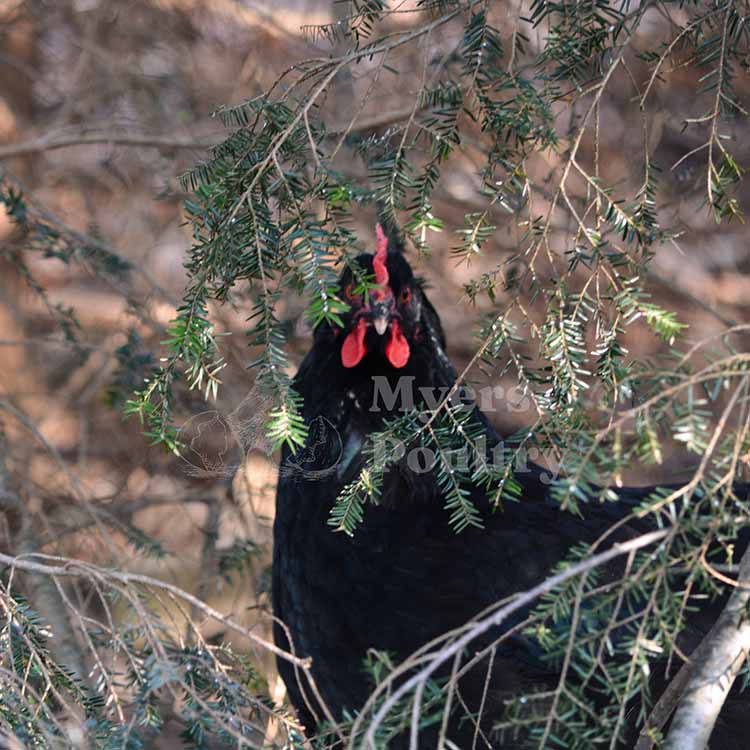
One of the simplest yet most effective ways to protect your chickens is ensuring they are locked safely in their coop each evening. Predators are most active at night, so rounding up your chickens at dusk will drastically reduce the risk of an attack.
One of the simplest yet most effective ways to protect your chickens is ensuring they are locked safely in their coop each evening. Predators are most active at night, so rounding up your chickens at dusk will drastically reduce the risk of an attack.
You can encourage your chickens to return by doing the following:
• Offer treats inside the coop as an incentive
• Keep the chicken coop and run clean, comfortable, and well-ventilated
• Provide plenty of roosting bars to encourage birds to settle in
• Add enrichment activities inside the coop to prevent boredom
• Create a routine by doing this at the same time every night
A Proactive Approach is the Best Way to Protect Your Chickens
While no method is completely foolproof, taking proactive steps to predator-proof your chicken coop will greatly reduce losses.
By reinforcing your coop, removing common attractants, and staying vigilant, you can keep your flock safe from all kinds of predators this spring.
Have questions about predator-proofing your coop? Reach out to the team at Myers Poultry. We are always here to answers any questions you may have about raising poultry.